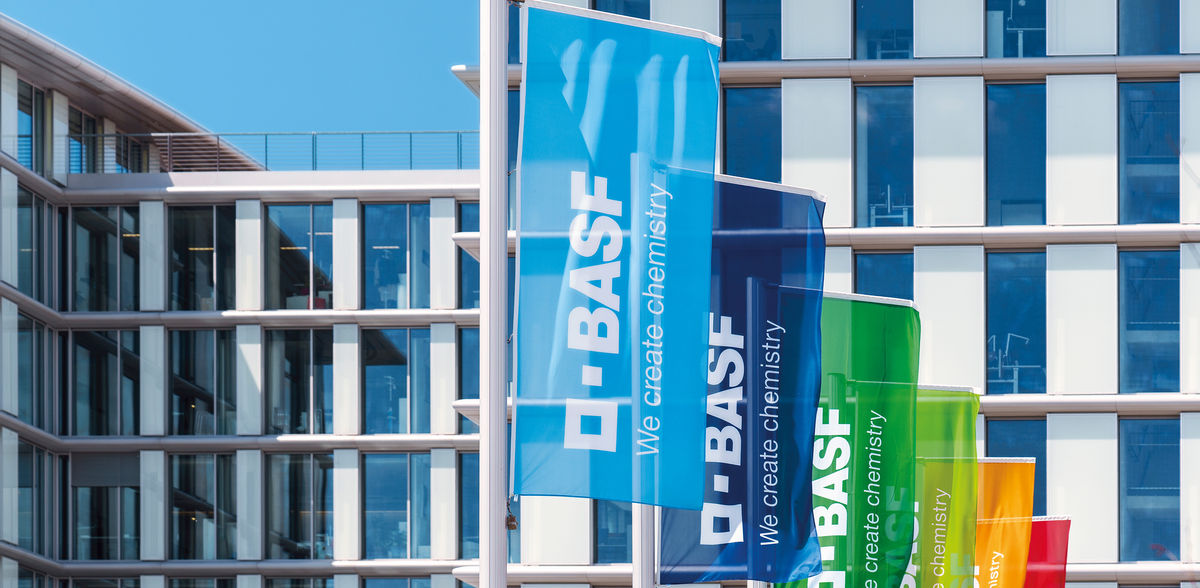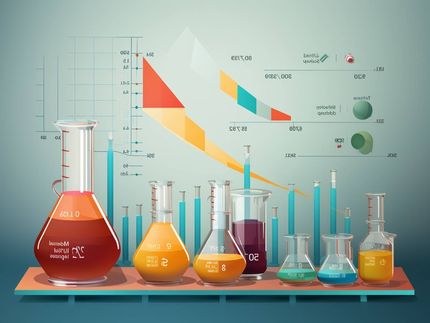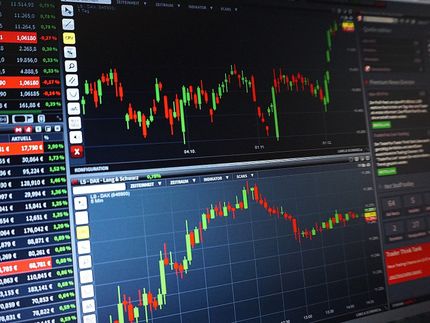BASF with solid start to the year
The global chemical industry recovered slightly in the first quarter of 2024
BASF got off to a solid start in 2024. Sales in the first quarter of 2024 amounted to €17.6 billion, €2.4 billion below the figure of the prior-year quarter. This decline in sales was mainly driven by considerably reduced prices as a result of lower raw materials and energy prices in almost all segments as well as lower precious metal prices in the Surface Technologies segment. Negative currency effects contributed to the sales decrease in all segments. Considerable growth in sales volumes in the Chemicals, Materials, Nutrition & Care and Industrial Solutions segments had a positive impact on sales. This more than compensated for lower volumes in the Agricultural Solutions and Surface Technologies segments.
Income from operations before depreciation, amortization and special items (EBITDA before special items) amounted to €2.7 billion, 5.7 percent higher than the average of analysts’ estimates. Compared with the first quarter of 2023, EBITDA before special items decreased by €153 million or 5.3 percent. The Nutrition & Care, Materials, Industrial Solutions and Chemicals segments increased EBITDA before special items, in some cases significantly, mainly due to reduced fixed costs as well as predominantly volume-related higher contribution margins. Despite these earnings increases, the BASF Group’s EBITDA before special items declined slightly, in particular due to the considerable decline in earnings of Other, which was primarily attributable to higher bonus provisions. The Agricultural Solutions and Surface Technologies segments also recorded lower EBITDA before special items than in the first quarter of 2023.
EBITDA amounted to €2.7 billion compared with €2.8 billion in the prior-year period. The EBITDA margin before special items was 15.4 percent, up from 14.3 percent in the prior-year quarter. At €1.7 billion, EBIT was €177 million below the figure of the prior-year quarter. Depreciation and amortization amounted to €965 million (prior-year quarter: €944 million).
Income after taxes declined by €193 million compared with the first quarter of 2023 to €1.4 billion. Noncontrolling interests of €43 million were almost at prior-year level. As a result, net income amounted to €1.4 billion (prior-year quarter: €1.6 billion).
Development of cash flows in the first quarter of 2024
Cash flows from operating activities amounted to minus €0.5 billion, compared with minus €1.0 billion in the prior-year quarter. The improvement was primarily due to lower cash outflow from net working capital. Free cash flow, which was negatively impacted by the typical seasonal increase in receivables in the Agricultural Solutions segment, improved to minus €1.5 billion in the first quarter of 2024 compared with minus €1.9 billion in the prior-year quarter.
Dividend proposal of €3.40 per share for the 2023 business year
As previously announced, the Board of Executive Directors and the Supervisory Board of BASF SE will propose to the Annual Shareholders’ Meeting a dividend of €3.40 per share, matching the prior-year level. This equates to a payout of €3.0 billion to shareholders of BASF SE. With this proposed dividend, the BASF share offers a high dividend yield of 7.0 percent based on the year-end share price for 2023. BASF is part of the DivDAX share index, which contains the 15 companies with the highest dividend yield in the DAX 40.
All shareholders who hold BASF shares as of April 25, 2024, the date of the Annual Shareholders’ Meeting, are entitled to receive the dividend. On the ex-dividend day, in this case April 26, 2024, the BASF share will trade with a discount equivalent to the dividend amount of €3.40. The dividend will be paid out on April 30, 2024, assuming the Annual Shareholders’ Meeting approves the proposed dividend.
BASF Group outlook for 2024
The assumptions regarding the global economic environment in 2024 from the BASF Report 2023 remain unchanged:
- Growth in gross domestic product: +2.3%
- Growth in industrial production: +2.2%
- Growth in chemical production: +2.7%
- Average euro/dollar exchange rate of $1.10 per euro
- Average annual oil price (Brent crude) of $80 per barrel
The BASF Group’s forecast for the 2024 business year published in the BASF Report 2023 also remains unchanged:
- EBITDA before special items of between €8.0 billion and €8.6 billion
- Free cash flow of between €0.1 billion and €0.6 billion
- CO2 emissions of between 16.7 million metric tons and 17.7 million metric tons
The development of the global economy is still subject to uncertainty. The global chemical industry recovered slightly in the first quarter of 2024. It grew considerably faster than overall industrial production because the customer industries somewhat restocked their very low inventories.





























































